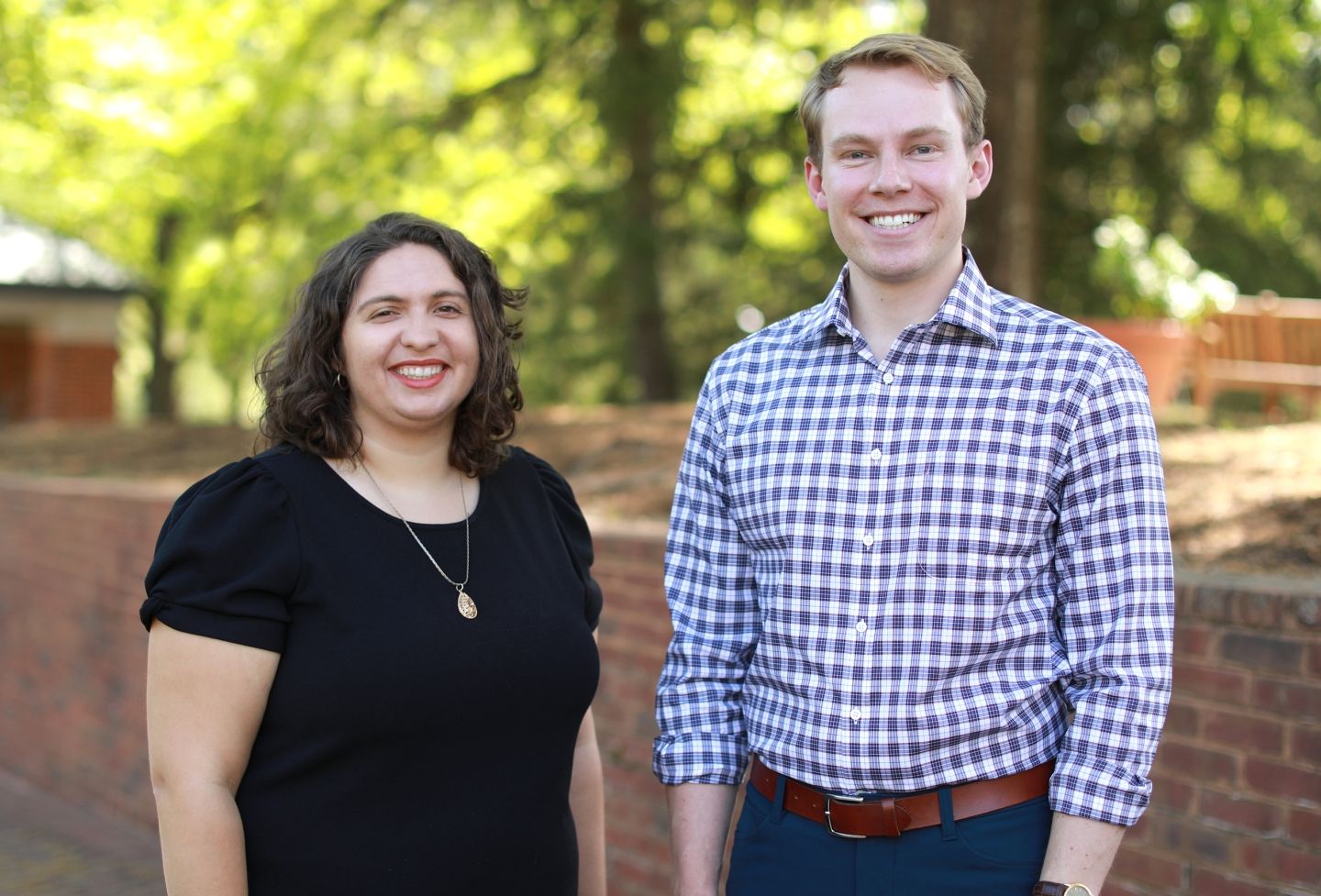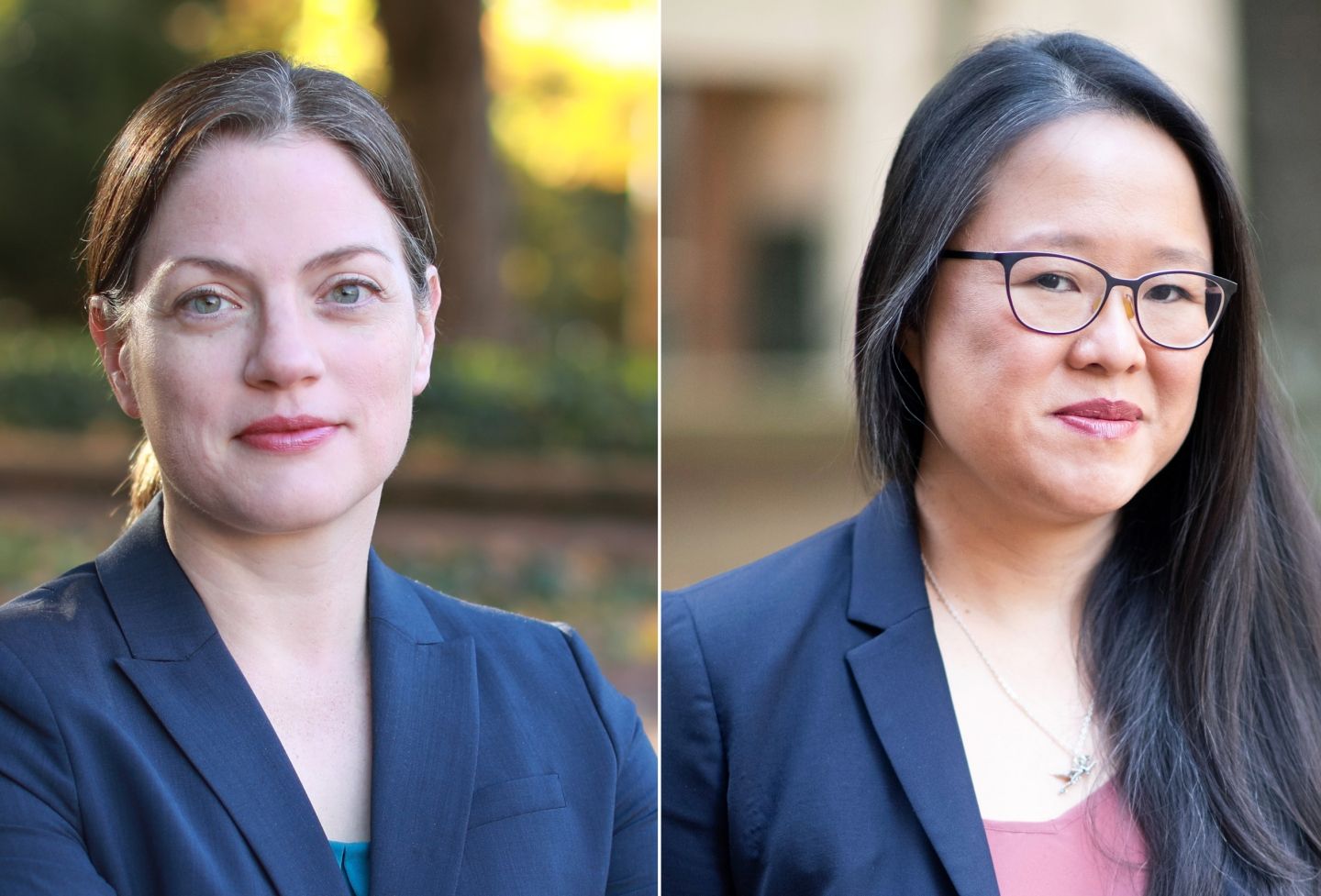A University of Virginia law clinic argued before a federal appeals court today for the release of information that may shed light on the causes of the financial crisis in 2008.
A three-judge panel of the U.S. Court of Appeals for the District of Columbia Circuit heard an appeal by insurance and financial services giant American International Group Inc. to a case brought by UVA Law's First Amendment Clinic.
The First Amendment Clinic filed a lawsuit on behalf of Sue Reisinger, a reporter for The American Lawyer and Corporate Counsel magazines, seeking the public release of corporate monitor reports that resulted from a $126 million securities violations settlement between AIG and the Securities and Exchange Commission in 2004. In April, a federal judge sided with the clinic and ordered the reports released, but in May the same judge granted AIG a stay on the reports' release, pending appeal.
In court today, clinic co-director Joshua Wheeler '92, who also directs the Thomas Jefferson Center for the Protection of Free Expression, argued that the district court's order to release the reports to the public should stand.
"There's certainly a David and Goliath aspect to this case," Wheeler said in an interview last week.
Reisinger and the clinic argue that the reports may better inform the public about conditions that led to the financial crisis in 2008 and help answer questions about federal oversight of the financial industry leading up to the economic meltdown.
"It's good for people in this country to have disclosure and openness of government, and we hope to see the D.C. Circuit affirm this decision," said third-year law student Tiffany Rainbolt, who was among the clinic students who helped draft the original motion in the spring.
Alexandra Margaret Walsh, an attorney with Baker Botts in Washington, D.C., represented AIG at the hearing.
The Securities and Exchange Commission did not join AIG in the appeal.
Fall clinic participants Jane Kutepova '14, Natalie Turner '13 and Madison Whitmore '14 helped prepare the briefs the clinic filed in response to the appeal. Other students critiqued oral argument strategies and helped hone language in advance of the hearing.
In its briefs, AIG argued that the corporate monitor's reports were not judicial records and were therefore not subject to public access laws, and that the independent consultant AIG retained was not a corporate monitor.
AIG argued in its brief that "the district court abused its discretion."
But the clinic argued in its brief that "the balance of interest weighs in disclosure and no compelling need exists to deny access."
Both sides had only 10 minutes to present during the hearing, said Bruce Brown, co-director of the clinic. Brown, who also is executive director of the Reporters Committee for Freedom of the Press and of counsel at Baker Hostetler in Washington, D.C., said it may be four to six months before a decision is handed down.
To help Wheeler make his final preparations for today, three attorneys familiar with the area of law agreed to be panelists for a moot run-through last Thursday.
Wheeler said clinic students "peppered" him with questions even on the car ride to the moot.
"I have found the clinic students to be incredibly helpful in preparing for the oral argument," Wheeler said. "On a wide variety of anticipated questions, they came up with a much better answer than I did. Even though the substance of answers was the same, they managed to say in one sentence what took me three or four."
Kutepova, a second-year law student who helped prepare Wheeler's outline for today, was among the clinic participants who traveled to D.C. for the final round of practice last week.
"I was surprised the questions the attorneys asked [in the mooting] correlated well with what we anticipated," Kutepova said. "It was an invaluable experience you might not have until much further along, working for a law firm."
Founded in 1819, the University of Virginia School of Law is the second-oldest continuously operating law school in the nation. Consistently ranked among the top law schools, Virginia is a world-renowned training ground for distinguished lawyers and public servants, instilling in them a commitment to leadership, integrity and community service.


